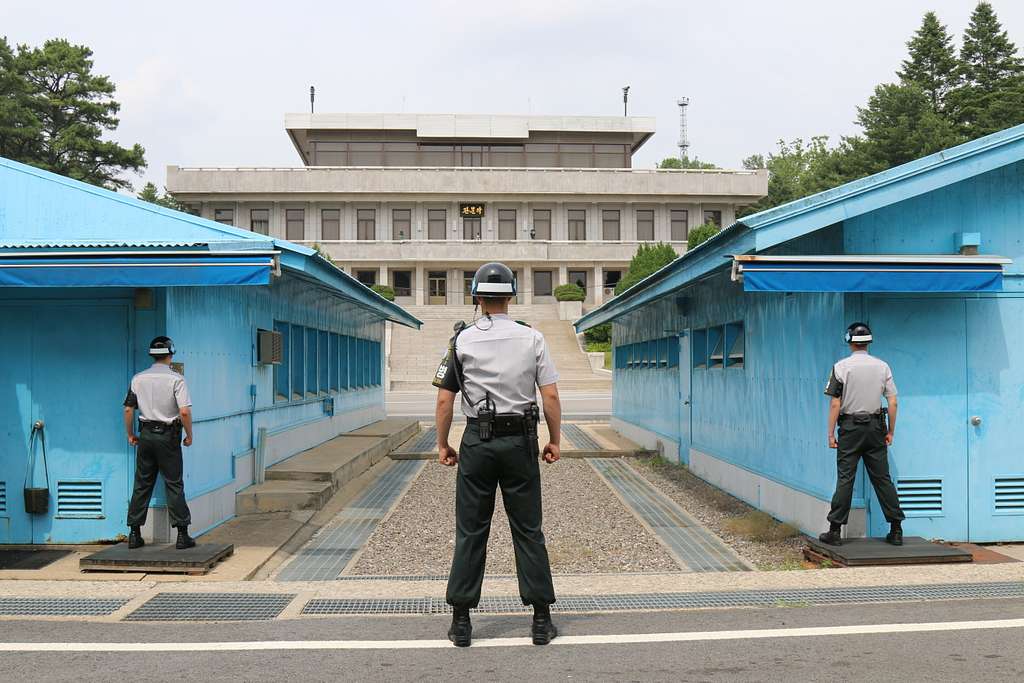Debates Over Peace, Politics and Healthcare Reforms
In a video message marking the 6th anniversary of the historic Panmunjom Declaration, former President Moon Jae-in urged the Yoon Suk-yeol government to "swiftly shift the policy line on inter-Korean relations and the Korean Peninsula from confrontation and conflict to peace and prosperity."

Former President Moon Calls for Shift Towards Inter-Korean Reconciliation
As South Korea grapples with the aftermath of a landmark general election that saw the opposition Democratic Party secure a supermajority in the National Assembly, a familiar voice from the past has reemerged to push for a dramatically different approach to inter-Korean relations.
In a video message marking the 6th anniversary of the historic Panmunjom Declaration, former President Moon Jae-in urged the Yoon Suk-yeol government to "swiftly shift the policy line on inter-Korean relations and the Korean Peninsula from confrontation and conflict to peace and prosperity." Moon, who staked his legacy on engagement with North Korea, warned that the situation on the peninsula had deteriorated to an "extreme degree" over the past two years, with growing risks of military clashes and war.
Under Moon's administration, South Korea had pursued a proactive policy of dialogue and detente with the North, seeking to turn crises into opportunities for peace through the Panmunjom Declaration and other summits with Kim Jong-un. But President Yoon, who took office last year on a platform of getting tough on Pyongyang, has largely eschewed negotiations in favor of strengthening the U.S.-ROK alliance and trilateral cooperation with Japan to counter the North Korean threat.
"We must come together to revisit the meaning of the Panmunjom Declaration and make efforts to return to the path of peace," Moon insisted, underlining the agreement's core tenets - dialogue as the only path to solving problems, proactive efforts to turn crises into opportunities, and sincere engagement based on empathy rather than finger-pointing.
Moon's call for a dramatic shift comes as the geopolitical context on the Korean Peninsula grows more complicated, with deepening U.S.-China competition and realignments in the Northeast Asian order. Despite Moon's appeals, the deep-rooted distrust between the two Koreas after decades of tensions, compounded by Pyongyang's expanding nuclear arsenal and its hostile rhetoric redefining inter-Korean ties, poses formidable challenges to any swift change in policy.
Yet some see potential opportunities in Japan's recent outreach to North Korea and China's shared interest with the U.S. in denuclearization. As Pyongyang gears up to celebrate the 75th anniversary of its ties with Beijing this year, the coming months could prove pivotal in shaping the future trajectory of inter-Korean relations and regional stability.
Political Brinkmanship Marks Final Weeks of 21st National Assembly
The landslide victory by the Democratic Party in this month's general election, which delivered them 151 out of 300 seats in the National Assembly, is heralding a new era of legislative activism targeting the Yoon administration. With DP lawmakers emboldened by what they claim is a public mandate for their agenda, a slew of contentious bills and calls for high-profile investigations are shaking up the political landscape.